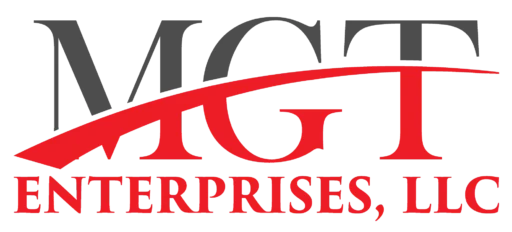Have you ever asked yourself why diversity in government contracting is more than a box to check? For most agencies and companies, it’s an essential approach that drives innovation, fairness, and improved results. Through embracing suppliers of all kinds, government buyers are able to achieve inclusion targets while gaining access to more ideas and skills.
That’s where MBE and WBE partners step in. Minority Business Enterprises (MBE) and Women Business Enterprises (WBE) have a significant contribution toward making bids more powerful. Prime contractors, in conjunction with certified diverse businesses, not only meet procurement needs but also increase credibility, extend networks, and improve odds for success within competitive contracting worlds.
Comprehending Diversity in Government Contracting
Diversity in government contracting means the proactive inclusion of women-owned, minority-owned, veteran-owned, and other disadvantaged businesses in government procurement opportunities. This initiative guarantees that small and disadvantaged businesses have an equal opportunity to compete and thrive in the federal marketplace.
Inclusive purchasing practices assist with levelling the playing field by inviting WBE and MBE partners to participate. These purchasing practices are not solely for meeting goals—they foster innovation, mirror community demographics, and increase competition. Agencies more and more depend on suppliers who hold themselves accountable for diversity and inclusion.
By recognizing the value of diverse views, government agencies unlock new solutions, cultural expertise, and larger pools of talent. For contractors, this implies that WBE and MBE partnerships are not only strategic for compliance purposes but also necessary for building stronger, more competitive proposals. Diversity isn’t trendy; it’s a tested advantage in the contracting arena.
The Worth of WBE & MBE Partnerships
Advantages of Partnerships
Teaming with Women Business Enterprises (WBEs) and Minority Business Enterprises (MBEs) provides companies with a real advantage in government contracting. Most agencies have stated objectives to do business with diverse suppliers, which means that partnerships can lead to contract opportunities otherwise unavailable. Collaborating with WBE and MBE partners also satisfies diversity requirements, making bids more appealing and compliant with government requirements.
In addition to access, these alliances build a business’s reputation by promoting diversity and inclusion. Prime contractors and agencies tend to favour collaboration with groups representing their client communities. By establishing business relationships with WBE and MBE partners, corporations demonstrate their dedication to wider social ends, which can reinforce their credibility and enhance long-term potential.
Innovation and Advantage
Innovation increases due to diversity, with more solutions to project problems. Unique experiences of WBE and MBE partners tend to bring innovative perspectives, which can lead to creative and better solutions. In competitive bidding, the key to winning or losing a contract can be innovation.
Also, diverse groups tend to be more responsive to shifting project priorities. This agility has the potential to be a tactical advantage at proposal time and also during project performance, distinguishing bids from less-diverse competitors.
Certification Advantages and Prospects
WBE (Women Business Enterprise) and MBE (Minority Business Enterprise) certifications open up worthwhile opportunities in the government contracting environment. The certification is an official verification of a business’s diverse ownership and brings the authority and confidence of federal, state, and local governments. Certified companies are usually more visible in supplier databases and procurement websites, thus it is simpler to locate and collaborate with them.
One of the greatest advantages is access to set-aside contracts. Government agencies often set aside parts of their budgets for diverse vendors, providing special opportunities for certified WBE and MBE firms. These contracts can provide a steady stream of revenue and an opportunity to establish an excellent track record with government customers.
Certification also paves the way to influential networking and mentoring relationships. From supplier diversity programs to matchmaking events, WBE and MBE-certified companies are regularly invited to link up with primes, procurement officials, and other influential players, broadening their scope and voice.
Strategies to Construct Excellent Partnerships
Identifying appropriate WBE partners and MBE partners starts with thoughtful outreach and investigation. Seek certified firms through official listings like the SBA, WBENC, or NMSDC. Attend procurement conferences, matchmaking conferences, and regional business expos to connect with prospective partners. The best partnerships are founded on complementary strengths—technical capability, prior performance, or specialty expertise.
As soon as a match is established, open and clear communication is necessary. Define the roles, duties, and expectations from the very beginning. This involves describing how tasks will be allocated, decisions will be made, and disagreements will be addressed. A common understanding prevents disputes and facilitates easier project implementation.
Just as important is alignment on long-term objectives. Healthy collaborations between WBE partners and MBE partners are not about landing one contract, but about developing a repeatable model. Mutual values of growth, quality, and compliance allow the creation of a foundation for future success.
Overcoming Diverse Contracting Challenges
Developing successful partnerships that foster diversity in government contracting can present special challenges. One of the most common challenges is the absence of awareness or appreciation for the worth that MBE partners and WBE partners provide. Certain businesses may also have difficulties in locating certified diverse partners who meet their industry requirements or technical expertise.
In order to surpass these challenges, active outreach is required. Make use of government resources, certification organizations, and online databases in finding qualified WBE partners and MBE partners. Join industry associations or go to supplier diversity networking events as a way to diversify your potential collaborators. Tapping small business development centres is also beneficial to help vet and outreach.
In addition, establishing open communication channels and mutual expectations from the outset can establish trust and prevent miscommunication. By engaging in diverse partnerships deliberately, companies can enhance their roles in government contracting and make more inclusive, competitive bids.
Final Thoughts
Having diversity in government contracting is more than just compliance — it’s about bringing innovation, broadening perspectives, and making stronger bids. Looking out for partnerships with WBE and MBE firms can help businesses to unlock set-aside opportunities and increase their competitiveness. Implementing diversity in your business isn’t just for good ethics — it’s also a smart business strategy.






